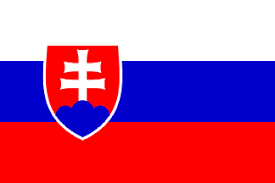TEHRAN, Feb 26 - The leading opposition contender in Slovakia's presidential election quit the race on Tuesday in a move to consolidate voter bases and better challenge the ruling Smer party candidate.
 TEHRAN, Young Journalists Club (YJC) - The two-round vote in March will test the three-party governing coalition a year after the murder of investigative reporter Jan Kuciak and his fiancee ignited the biggest protests in the central European country's post-communist history.
TEHRAN, Young Journalists Club (YJC) - The two-round vote in March will test the three-party governing coalition a year after the murder of investigative reporter Jan Kuciak and his fiancee ignited the biggest protests in the central European country's post-communist history.
The killings, over which four people have been charged though the motive remains unclear, sparked an outcry over perceived state corruption and impunity, and long-time prime minister Robert Fico resigned to keep his government intact.
They also dented his Smer party's standing atop opinion polls, and concerns for the rule of law and state of democracy are expected to be central themes in the election campaign from which the opposition hopes to benefit.
Scientist and entrepreneur Robert Mistrik had been the main challenger to Smer candidate Maros Sefcovic, a career diplomat and currently the European Commission vice president who holds a narrow lead in the polls.
But Mistrik bowed out of the race on Tuesday and endorsed environmental lawyer Zuzana Caputova, who is backed by a number of opposition progressive and liberal parties as well as outgoing president Andrej Kiska.
"I express loud and clear support for Ms Caputova. Data to be released this week show clear momentum for her," Mistrik told a news conference. Referring to Sefcovic, he said he was urging voters "not to let the pawn of Robert Fico become president".
Both Sefcovic, 52, and Caputova, 45, pledge to reaffirm Slovakia's status as a member of the European Union and euro zone, making the country unlikely to join the rising tide of euroscepticism around the bloc.
Slovakia's president wields little day-to-day power but must approve the formation of new governments and appoints judges to the constitutional court.
The latest AKO opinion poll last week put Sefcovic at 19.7 percent, Mistrik at 18.2 percent and Caputova at 17.4 percent.
The next parliamentary election is due in 2020.
Source: Reuters
 TEHRAN,
TEHRAN,